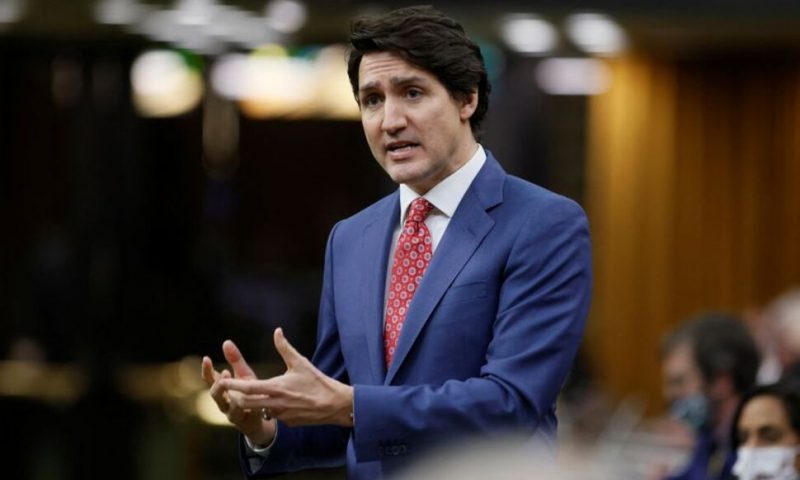OTTAWA – Canada’s Liberals put red-hot real estate markets squarely in their sights on Thursday, laying out a budget geared at boosting housing affordability amid soaring inflation, while promising modest new spending to encourage medium-term growth.
The 2022 budget set out C$9.5 billion ($7.5 billion) over five years in net new spending on housing initiatives and promised to legally ban foreign investors from buying Canadian homes for two years, though it gave no timeline for that legislation.
It also pledged to target domestic housing speculators with new taxes, double new-home construction over the next decade and boost tax credits for first-time buyers. Most measures were outlined in the Liberal’s re-election campaign last year.
“Our economy is built by people, and people need homes in which to live,” Finance Minister Chrystia Freeland said as she presented the budget to lawmakers.
“We will prevent foreign investors from parking their money in Canada by buying up homes,” she continued.
But Freeland later added there was no single “silver bullet” to solve Canada’s housing crisis. (Graphic: Canada fiscal projections in Budget 2022 – https://graphics.reuters.com/CANADA-BUDGET/PROJECTIONS/mopanbzggva/chart.png)
The budget also hiked corporate taxes for the country’s most profitable banks and insurers to 16.5% from 15% on all taxable income over C$100 million, less than the 3% rise pledged in last year’s election campaign. That, along with a one-time recovery dividend, will boost revenues by C$6.1 billion over the five-year budget time frame.
All told, the budget included a net C$29 billion in new spending over five years, as the waning COVID-19 pandemic allowed the government to ease off on emergency stimulus.
While that was less spending than some feared, economists said it would not help ease inflationary pressures.
“At the end of the day, we still are adding stimulus to the economy at a time when the Bank of Canada is actively trying to cool down inflation,” said Robert Kavcic, senior economist at BMO Economics.
“I think it just reinforces what we’re already expecting, which is pretty aggressive near-term tightening from the Bank of Canada,” he added.
Inflation hit 5.7% in February and is expected to go higher before easing off later this year as supply chain bottlenecks unwind and the central bank increases interest rates.
The Bank of Canada is widely expected to make a rare 50-basis-point interest rate hike next week after raising its policy rate to 0.5% in March.
“This budget had one job – reverse the taxes and deficits that have ballooned inflation to a 30-year high,” said Pierre Poilievre, a frontrunner to lead the opposition Conservatives. “When your house is on fire, you don’t douse it in gasoline.”
The budget bill should pass in parliament after Prime Minister Justin Trudeau last month struck a support deal with the left-leaning New Democratic Party (NDP) to keep his minority government in power until 2025.
HOUSING AFFORDABILITY
Fast rising home prices – up 50.6% in two years – have become a political liability for politicians, as Canadians of all stripes struggle to find an affordable place to live.
While foreigners represent a small overall segment of home buyers in Canada, they can have an outsized impact on price escalation and are an easy target for politicians, experts say.
Experts also questioned plans to double the pace of homebuilding over the next decade, noting that most supply measures would depend on other levels of government playing ball.
“I’m not sure the federal government has any real levers here to influence supply,” said Robert Asselin, senior vice-president for policy at the Business Council of Canada, adding the whole housing strategy was “a bit gimmicky.”
The budget offered a substantial incentive to companies investing in carbon-capture technologies and set aside as much as C$3.8 billion over eight years to accelerate critical mineral exploration.
Military spending will see a C$8 billion boost over five years.
The budget also outlined C$5.3 billion over five years on a national dental care program for lower-income families, a key NDP demand for propping up the Trudeau government.
The budget deficit for the current fiscal year is nearly 10% lower than forecast in a December fiscal update, mostly due to higher revenues. The debt-to-GDP ratio is forecast to be 45.1% this fiscal year and to decline over the budget’s timeframe.

